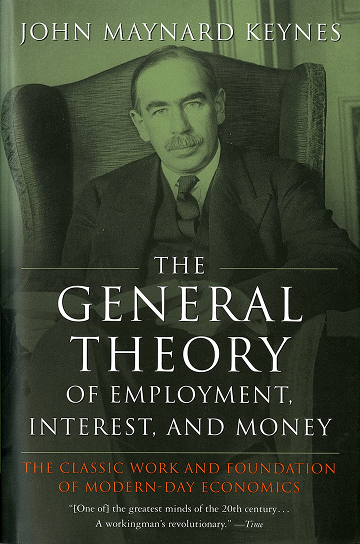David Tepper Net Worth, Biography and Key Insights



David Tepper’s Profile Summary
|
Company
|
Appaloosa Management |
|---|---|
|
Position
|
Founder and President |
|
Source of wealth
|
Hedge fund management via Appaloosa Management Investments in distressed debt Sports team ownership (Carolina Panthers, Charlotte FC) |
|
Also known as
|
Philanthropist Sports Team Owner |
|
Age
|
67 |
|
Education
|
University of Pittsburgh – Bachelor of Science in Economics Carnegie Mellon University – Master of Business Administration (MBA) |
|
Citizenship
|
United States |
|
Residence
|
Palm Beach, Florida |
|
Family
|
Spouse: Nicole Tepper Children: Three children |
|
Website, Social Media
|
David Tepper’s biography
David Alan Tepper, born on September 11, 1957, in Pittsburgh, Pennsylvania, is one of the most successful hedge fund managers in the world. After earning a degree in economics from the University of Pittsburgh and an MBA from Carnegie Mellon University, Tepper began his career at Goldman Sachs. There, he specialized in high-yield bonds and distressed debt, a focus that set the foundation for his future success.In 1993, frustrated by being passed over for partnership at Goldman Sachs, Tepper co-founded Appaloosa Management. The firm became famous for investing in distressed companies, and Tepper gained widespread recognition during the 2008 financial crisis when he made billions by betting on recovering financial stocks like Bank of America and Citigroup. His investment strategy often focuses on turning around companies on the brink of bankruptcy, making Appaloosa one of the most successful hedge funds in the world. Tepper is also the owner of the Carolina Panthers (NFL) and Charlotte FC (MLS), further expanding his influence beyond finance
-
How did David Tepper make money?
David Tepper, founder and CEO of Appaloosa Management, has become one of the world’s most successful investors thanks to his ability to profit from crises. He cut his teeth in finance at Republic Steel and then took a position as an analyst at Keystone Mutual Funds. But the defining moment of his career was a decade at Goldman Sachs, where he worked in asset management and developed a reputation as an expert in distressed debt.
In 1993, Tepper founded Appaloosa Management, which specialized in investing in distressed companies and undervalued assets. The company’s main income came from high-yield bonds and shares of companies in financial trouble. One of Tepper’s most successful deals was investing in bank stocks during the 2008 financial crisis. Appaloosa acquired Bank of America and Citigroup at rock-bottom levels, which earned the fund more than $7 billion in profits after the markets recovered.
Today, Appaloosa Management manages tens of billions of dollars in assets, and the fund’s average annual return is about 25%, which confirms its leadership in the hedge fund industry. Tepper’s capitalization also includes investments in real estate and the sports sector. In 2018, he acquired the Carolina Panthers (NFL) team for $2.3 billion, which was the largest investment in a sports club at the time.
David Tepper’s net worth is estimated at $18 billion, and Appaloosa Management remains one of the most influential companies in the alternative investment market. -
What is David Tepper net worth?
As of 2025, David Tepper’s net worth is estimated to be $21.3B.
What is David Tepper also known as?
Tepper is well-known for his philanthropic efforts, particularly his donations to Carnegie Mellon University, where he contributed over $120 million to create the David A. Tepper School of Business. He is also active in the sports world, owning the Carolina Panthers and Charlotte FC, solidifying his influence in both finance and sportsProminent achievements of David Tepper
Highest-earning hedge fund manager in 2009 and 2012Owner of Carolina Panthers (NFL) and Charlotte FC (MLS)
Donated over $120 million to establish the Tepper School of Business at Carnegie Mellon University
What are David Tepper’s key insights?
David Tepper is known for his contrarian investment approach, focusing on distressed assets and betting on companies during downturns. His success in navigating volatile markets, particularly during the 2008 financial crisis, has earned him a reputation for being one of the boldest investors on Wall Street
David Tepper’s personal life
In 1986, he married Marlene Resnick Tepper;[58] they have three children. In 2016, he and his wife divorced.[59] In 2019, he married Nicole Bronish after a long-term relationship
Useful insights
Understanding market forces
In my experience, to truly succeed as an investor, it’s essential to understand the driving forces behind market behavior. Market movements aren’t random—they’re influenced by a range of economic theories and dynamics. The following books provide valuable insights into these forces, offering a deeper understanding of how global financial markets operate and what shapes their trends.
-
Nassim Nicholas Taleb – "The Black Swan"

-
Summary:
Taleb explores the concept of rare, unpredictable events—so-called "Black Swans"—that can have massive impacts on markets and society. These events are often overlooked by traditional risk management models, leading to devastating consequences when they occur. Taleb illustrates how these unpredictable shocks shape our world, often more than gradual, expected changes.
-
Why read it:
This book challenges conventional thinking about risk and uncertainty, showing that many major historical and financial events were "Black Swans." It's a vital read for investors who want to build resilience in the face of market volatility.
-
-
John Maynard Keynes – "The General Theory of Employment, Interest, and Money"

-
Summary:
Keynes revolutionized economics by focusing on total demand within an economy and its effect on output and inflation. His theory suggested that government intervention could stabilize economic cycles through fiscal and monetary policy. The book also explains the consequences of under-consumption and the role of interest rates in managing economic stability.
-
Why read it:
For investors interested in macroeconomic trends and policy impacts, Keynes’ work is essential. Understanding the Keynesian framework can help investors predict how government actions might influence market performance.
-
Other profiles in category
Popular Financial Guides
Latest Financial News

South Africa unveils digital visas to attract film and events

South Africa invests R710 million to expand free Internet access































































































































